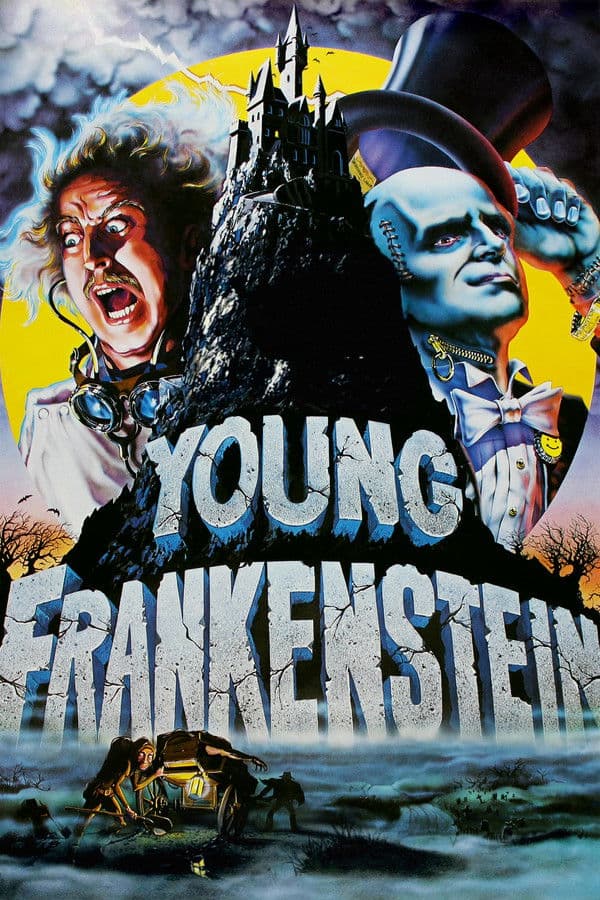
Young Frankenstein
1974 • Comedy • PG
A young neurosurgeon inherits the castle of his grandfather, the famous Dr. Victor von Frankenstein. In the castle he finds a funny hunchback, a pretty lab assistant and the elderly housekeeper. Young Frankenstein believes that the work of his grandfather was delusional, but when he discovers the book where the mad doctor described his reanimation experiment, he suddenly changes his mind.
Runtime: 1h 46m
Why you should read the novel
Mary Shelley's 'Frankenstein' is a profound literary masterpiece that delves into questions of ambition, creation, and responsibility. The novel explores deep moral and philosophical themes, including the isolation and suffering of both creator and creature—far beyond what the comedic adaptation presents. By reading the original text, you'll gain a richer understanding of the story’s emotional depth and the timeless questions it raises about humanity.
The source novel offers a gothic atmosphere and rich narrative style that builds suspense, empathy, and horror in equal measure. Shelley's evocative language immerses the reader in the settings of 19th-century Europe, inviting you to experience Victor Frankenstein's tragic descent and the creature's quest for acceptance. The novel’s psychological complexity and poetic descriptions make it a rewarding literary journey.
Choosing to read the book instead of watching the film allows you to discover the original intentions and vision of the author. You’ll engage with a thought-provoking exploration of human nature, the perils of unchecked ambition, and the consequences of isolation—messages that resonate as powerfully today as when the book was first published. Mary Shelley's 'Frankenstein' is an enduring work that deserves to be read and cherished.
Adaptation differences
One of the main differences between 'Young Frankenstein' and Mary Shelley's novel is the tone and genre. The film is a comedic parody filled with slapstick humor, puns, and playful gags, while the novel is a dark Gothic horror story that delves into philosophical and ethical questions about creation, ambition, and alienation. The movie’s lighthearted approach stands in stark contrast to the somber and tragic narrative of the book.
The characters and plotlines also diverge significantly. In 'Young Frankenstein,' the protagonist is Frederick Frankenstein, a fictional descendant of Victor Frankenstein, who tries to distance himself from his infamous family legacy, only to be drawn into similar experiments. This character doesn't exist in Mary Shelley's novel, where Victor Frankenstein is the sole creator. The film adds new characters for comedic effect, such as Igor and Inga, who are not present in the original story.
Many scenes in the movie are original inventions or humorous reinterpretations of classic horror tropes rather than faithful adaptations of Shelley's work. 'Young Frankenstein' introduces comic set-pieces like the monster’s tap-dancing performance and the exaggerated antics involving townsfolk—moments that have no counterpart in the novel, where the narrative focuses on gothic tension, existential dread, and tragic consequences.
Finally, the portrayal and motivations of the Creature in the movie differ widely from Shelley's text. In the novel, the Creature is intelligent, eloquent, and deeply philosophical, suffering from rejection and yearning for companionship. In contrast, 'Young Frankenstein’s' monster is mostly mute and the source of physical comedy and misunderstandings. The novel’s profound exploration of grief, regret, and the dangers of unchecked scientific ambition are replaced in the film by laughter and parody.
Young Frankenstein inspired from
Frankenstein; or, The Modern Prometheus
by Mary Shelley










